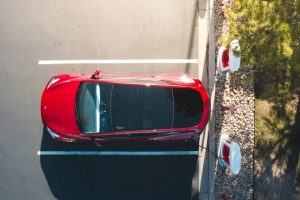- 💰 Financial Settlement: Tesla has agreed to pay $1.5 million to settle lawsuits accusing the company of mishandling and mislabeling hazardous waste materials in California.
- 🚫 Alleged Violations: The lawsuit claimed Tesla violated hazardous waste laws at 101 facilities across California, including its Fremont factory.
- 🗑️ Improper Waste Labeling: Tesla allegedly improperly labeled waste materials such as diesel fuel, paint materials, lubricating oils, brake fluids, and used lead-acid batteries.
- 🌍 Environmental Impact: Despite electric vehicles benefiting the environment, the manufacturing and servicing still generate harmful waste streams, as stated by San Francisco District Attorney Brooke Jenkins.
- ⚖️ Settlement Terms: Tesla did not admit wrongdoing but agreed to pay a $1.3 million civil penalty and $200,000 reimbursement to the counties. The company committed to better handling waste, initiating third-party monitoring over a five-year period.
- 🏞️ Scope of Lawsuit: The hazardous waste lawsuit involved 25 California counties, pointing to a significant and widespread environmental concern.
- 🔍 Past Environmental Lawsuits: This is not Tesla’s first encounter with environmental lawsuits in California; a 2021 case resulted in a $1 million settlement over air quality violations.
- 🌐 Third-Party Auditor: Tesla plans to hire a third-party auditor to monitor its waste handling practices, signaling a commitment to improving environmental responsibility.
- 🚗 Broader Impact: The settlement underscores the challenges faced by automakers in managing the environmental impact of their manufacturing processes, even within the realm of electric vehicles.
- 📜 Legal History: Tesla has a history of environmental legal challenges, emphasizing the need for continued vigilance and improvements in sustainable practices within the automotive industry.
In the intricate dance between technological innovation and environmental responsibility, electric vehicle giant Tesla finds itself at the center of a $1.5 million settlement. Accused of mishandling and mislabeling hazardous waste materials in California, this legal saga unveils the challenges and responsibilities entwined with the pursuit of sustainable transportation.
Understanding the Settlement
1. Financial Reckoning 💰
Tesla’s decision to pay $1.5 million reflects a willingness to address the allegations and underscores the financial implications of environmental compliance. The question arises: What led to this significant settlement?
2. Allegations of Violations 🚫
At the core of the issue is the accusation that Tesla violated hazardous waste laws at 101 facilities across California, including its Fremont factory. This broad-scale violation raises concerns about the extent of environmental oversight within the company.
3. Waste Labeling Woes 🗑️
Tesla stands accused of improperly labeling various waste materials, ranging from diesel fuel and paint materials to lubricating oils, brake fluids, and used lead-acid batteries. The alleged improper disposal of these materials exacerbates the environmental impact and adds layers to the accusations.
Environmental Implications of Electric Vehicle Manufacturing
4. Electric Vehicles and Waste Streams 🌍
While electric vehicles are celebrated for their positive impact on the environment, this case highlights a less-discussed aspect—the generation of harmful waste streams during manufacturing and servicing. San Francisco District Attorney Brooke Jenkins’ statement underscores the paradox inherent in the green automotive revolution.
5. Legal Tightrope: No Admission of Guilt ⚖️
Notably, Tesla did not admit to any wrongdoing in response to the lawsuit. The settlement terms include a $1.3 million civil penalty and a $200,000 reimbursement to the affected counties. This strategic move allows Tesla to address the issue without conceding guilt, maintaining its public image.
The Broad Landscape of Legal Challenges
6. Scope of Lawsuit 🏞️
The involvement of 25 California counties emphasizes the widespread concern regarding Tesla’s waste management practices. This expansive legal battle sheds light on the systemic challenges faced by automotive manufacturers in maintaining environmental compliance.
7. Echoes of the Past 🔍
This isn’t Tesla’s first encounter with environmental lawsuits in California. A 2021 case resulted in a $1 million settlement over air quality violations linked to the Fremont paint shop. The repetition of such legal challenges underscores the persistent need for improvement.
Commitment to Change and External Oversight
8. Third-Party Monitoring 🌐
Tesla’s commitment to hiring a third-party auditor for a five-year monitoring period is a significant step towards ensuring accountability and transparency. This move signals a proactive stance in addressing environmental concerns and fostering a culture of continuous improvement.
9. Broader Industry Impact 🚗
Beyond Tesla, this settlement serves as a stark reminder of the broader challenges faced by automakers in managing the environmental impact of their manufacturing processes. The electric vehicle industry, despite its eco-friendly goals, must navigate the complexities of waste management.
10. Legal History Lessons 📜
Tesla’s environmental legal history acts as a guidepost for the industry, emphasizing the need for ongoing vigilance and improvements in sustainable practices. The road to a greener future demands not just technological innovation but a holistic commitment to environmental stewardship.





